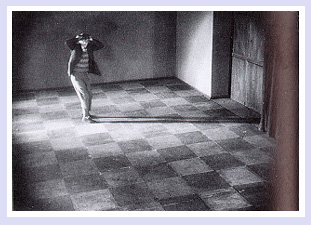Kaleidoscope, continued
From Clifford Geertz, The Cerebral Savage:
"Savage logic works like a kaleidoscope whose chips can fall into a variety of patterns while remaining unchanged in quantity, form, or color. The number of patterns producible in this way may be large if the chips are numerous and varied enough, but it is not infinite. The patterns consist in the disposition of the chips vis-a-vis one another (that is, they are a function of the relationships among the chips rather than their individual properties considered separately). And their range of possible transformations is strictly determined by the construction of the kaleidoscope, the inner law which governs its operation. And so it is too with savage thought. Both anecdotal and geometric, it builds coherent structures out of 'the odds and ends left over from psychological or historical process.'
These odds and ends, the chips of the kaleidoscope, are images drawn from myth, ritual, magic, and empirical lore…. as in a kaleidoscope, one always sees the chips distributed in some pattern, however ill-formed or irregular. But, as in a kaleidoscope, they are detachable from these structures and arrangeable into different ones of a similar sort…. Levi-Strauss generalizes this permutational view of thinking to savage thought in general. It is all a matter of shuffling discrete (and concrete) images–totem animals, sacred colors, wind directions, sun deities, or whatever–so as to produce symbolic structures capable of formulating and communicating objective (which is not to say accurate) analyses of the social and physical worlds.
…. And the point is general. The relationship between a symbolic structure and its referent, the basis of its meaning, is fundamentally 'logical,' a coincidence of form– not affective, not historical, not functional. Savage thought is frozen reason and anthropology is, like music and mathematics, 'one of the few true vocations.'
Or like linguistics."
Edward Sapir on Linguistics, Mathematics, and Music:
"… linguistics has also that profoundly serene and satisfying quality which inheres in mathematics and in music and which may be described as the creation out of simple elements of a self-contained universe of forms. Linguistics has neither the sweep nor the instrumental power of mathematics, nor has it the universal aesthetic appeal of music. But under its crabbed, technical, appearance there lies hidden the same classical spirit, the same freedom in restraint, which animates mathematics and music at their purest."
— Edward Sapir, "The Grammarian and his Language,"
American Mercury 1:149-155,1924
From Robert de Marrais, Canonical Collage-oscopes:
"…underwriting the form languages of ever more domains of mathematics is a set of deep patterns which not only offer access to a kind of ideality that Plato claimed to see the universe as created with in the Timaeus; more than this, the realm of Platonic forms is itself subsumed in this new set of design elements– and their most general instances are not the regular solids, but crystallographic reflection groups. You know, those things the non-professionals call . . . kaleidoscopes! * (In the next exciting episode, we'll see how Derrida claims mathematics is the key to freeing us from 'logocentrism' **— then ask him why, then, he jettisoned the deepest structures of mathematical patterning just to make his name…)
* H. S. M. Coxeter, Regular Polytopes (New York: Dover, 1973) is the great classic text by a great creative force in this beautiful area of geometry (A polytope is an n-dimensional analog of a polygon or polyhedron. Chapter V of this book is entitled 'The Kaleidoscope'….)
** … contemporary with the Johns Hopkins hatchet job that won him American marketshare, Derrida was also being subjected to a series of probing interviews in Paris by the hometown crowd. He first gained academic notoriety in France for his book-length reading of Husserl's two-dozen-page essay on 'The Origin of Geometry.' The interviews were collected under the rubric of Positions (Chicago: U. of Chicago Press, 1981…). On pp. 34-5 he says the following: 'the resistance to logico-mathematical notation has always been the signature of logocentrism and phonologism in the event to which they have dominated metaphysics and the classical semiological and linguistic projects…. A grammatology that would break with this system of presuppositions, then, must in effect liberate the mathematization of language…. The effective progress of mathematical notation thus goes along with the deconstruction of metaphysics, with the profound renewal of mathematics itself, and the concept of science for which mathematics has always been the model.' Nice campaign speech, Jacques; but as we'll see, you reneged on your promise not just with the kaleidoscope (and we'll investigate, in depth, the many layers of contradiction and cluelessness you put on display in that disingenuous 'playing to the house'); no, we'll see how, at numerous other critical junctures, you instinctively took the wrong fork in the road whenever mathematical issues arose… henceforth, monsieur, as Joe Louis once said, 'You can run, but you just can't hide.'…."







 .
.





















